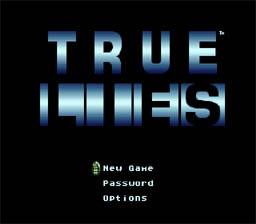 Rules for the use of ordinary language are neither right nor wrong, neither true nor false: they are merely useful for the particular applications in which we apply them. Language is nothing more than relatively stable ways of playing a particular language-game. Say's Wittgenstein in Tractatus. George A. Paul examines the relativistic claim of Wittenstein.
Rules for the use of ordinary language are neither right nor wrong, neither true nor false: they are merely useful for the particular applications in which we apply them. Language is nothing more than relatively stable ways of playing a particular language-game. Say's Wittgenstein in Tractatus. George A. Paul examines the relativistic claim of Wittenstein.
Rules for the use of ordinary language are neither right nor wrong, neither true nor false: they are merely useful for the particular applications in which we apply them. Even the fundamental truths of arithmetic are nothing more than relatively stable ways of playing a particular language-game.
Accountants, Students, Rap musicians, policemen, and prostitutes for example—develop ways of speaking that serve their needs as a group, and these constitute the language-game they employ.
It is misleading even to attempt to fix the meaning of particular expressions by linking them referentially to things in the world. The meaning of a word or phrase or proposition is nothing other than the set of (informal) rules governing the use of the expression in actual life. Like the rules of a game, argued Wittgenstein in Tractatus.
Can this be true, is Language relative to the field of study and is it subjective creation of our imagination which does not communicate truth or false, right and wrong? How can we understand each other this being the case? We understand because we speak referentially about things in the world. How would a judge decide if everyone speaks subjectively? A policeman can have subjective thoughts towards my rightly parked car and express it on a piece of paper.
If this is what Wittengstein says, which he in fact declares. Because of his affirmation, 'I' granting him the truth of his proposition, am forced to say, these are his private subjective thoughts about language and my thought is that, he is wrong.
Wittgenstein disagreed, offering to give evidence and reasons for what he believed. Immediately, he replied….. ….
Wittgenstein : "Whatever anyone believes is true."
I answered : Whatever I believe is true, so don't say I am wrong and you can't say I am wrong because what I say must also be true according to your truth.
Wittgenstein : "Well, it's true for you, but not for me."
I : "My truth for you is that you don't have truth. So that must be true, because it's my truth which cannot be wrong according to you. So you're still wrong.
Wittgenstein : "No, you don't understand. If it's true for you, it only applies to you, not to anyone else. It's true for you, but not for me.
I : "It may be true for you that your truth is only true for you, but my truth is that, what is true for me is also true for you, so you lose, because that's my truth, and you can't apply your truth to me because that's your truth!"
Moreover you need not tell me something which is true only for you, as you may keep what is true only for you as your private secret, why bother me with it, as it would not apply to me, why ask me to change my opinion, when I can have my own opinion about the same thing. However, I can speak about my truth since it is not subjective but is a public truth applicable to you and every one.
{moscomment}






